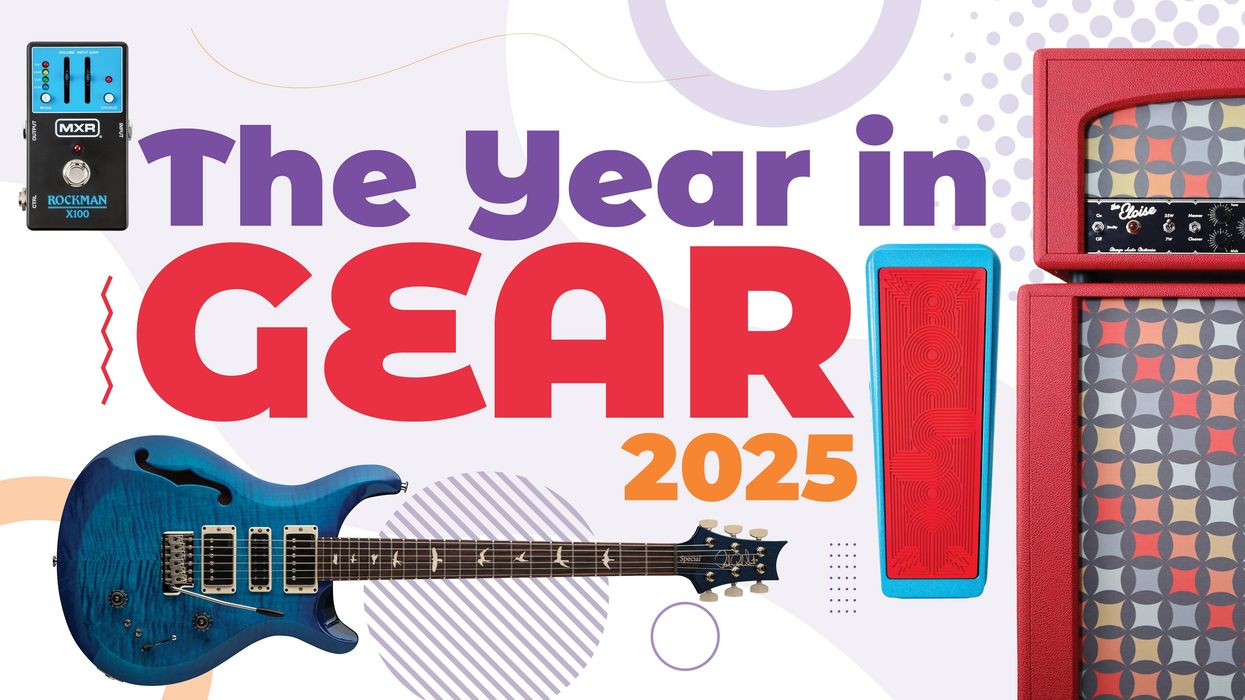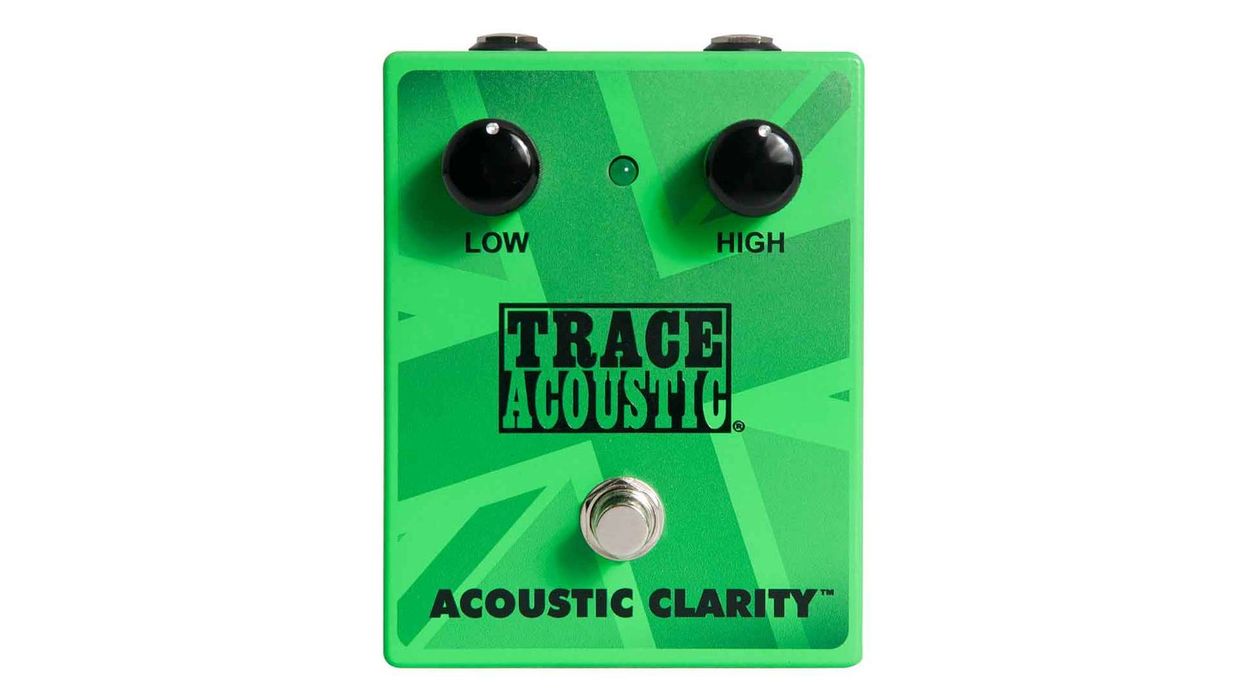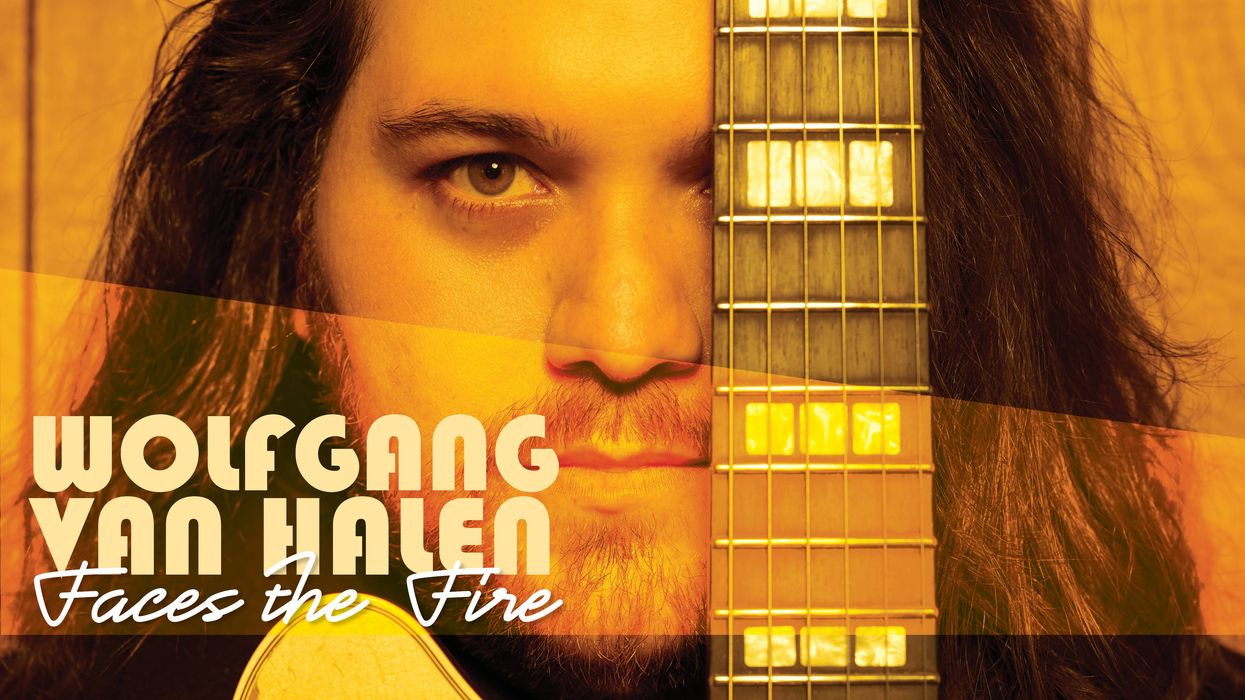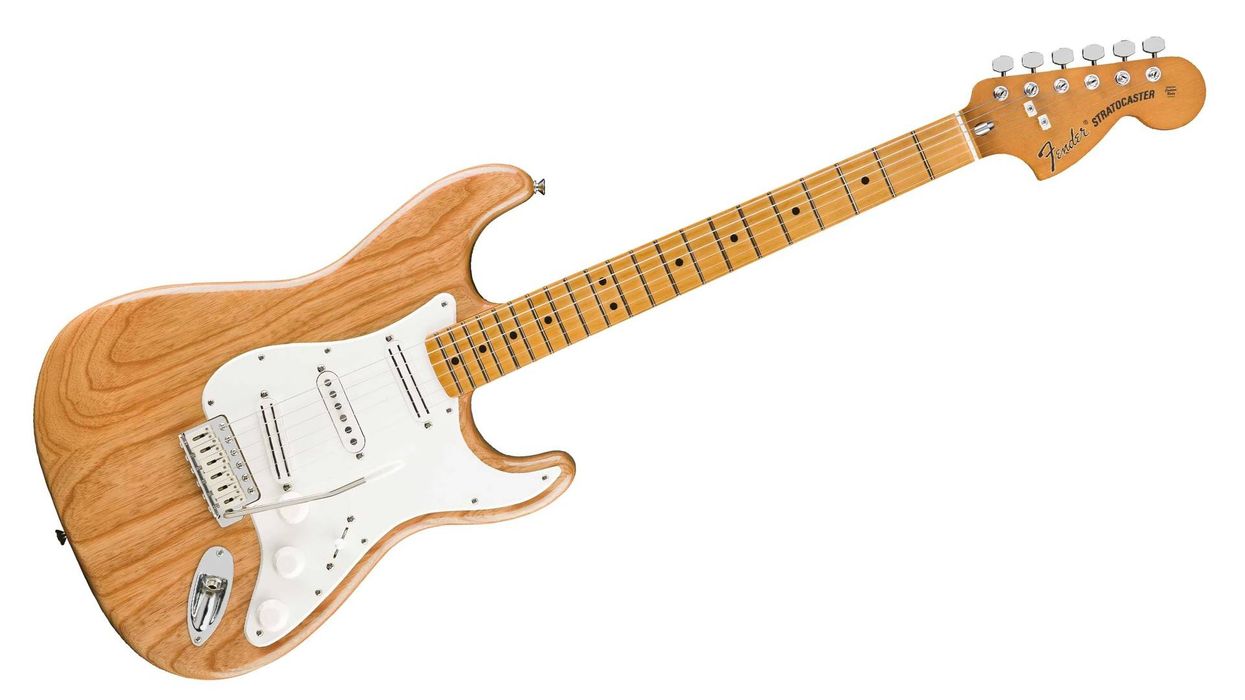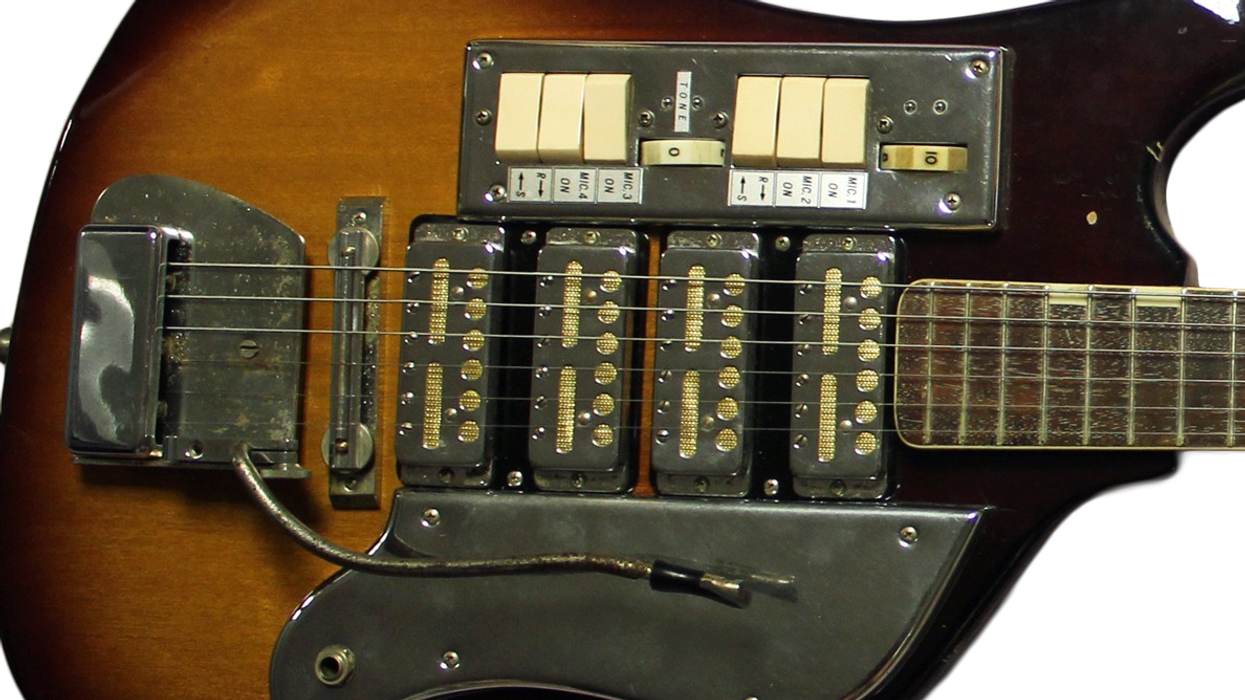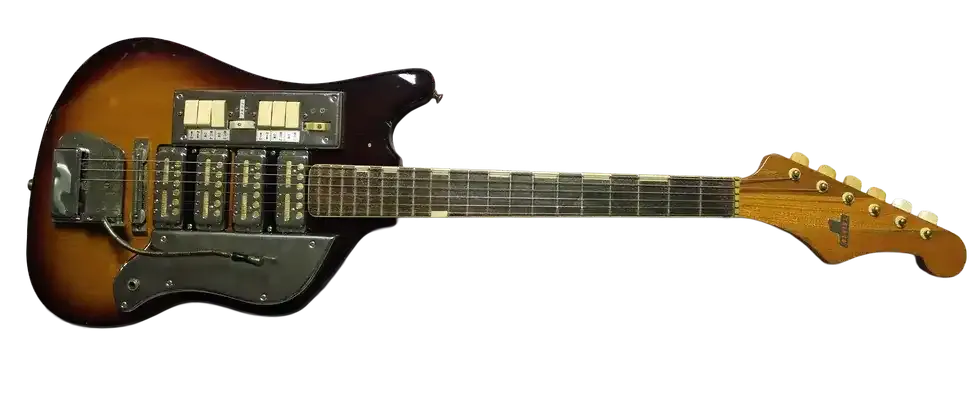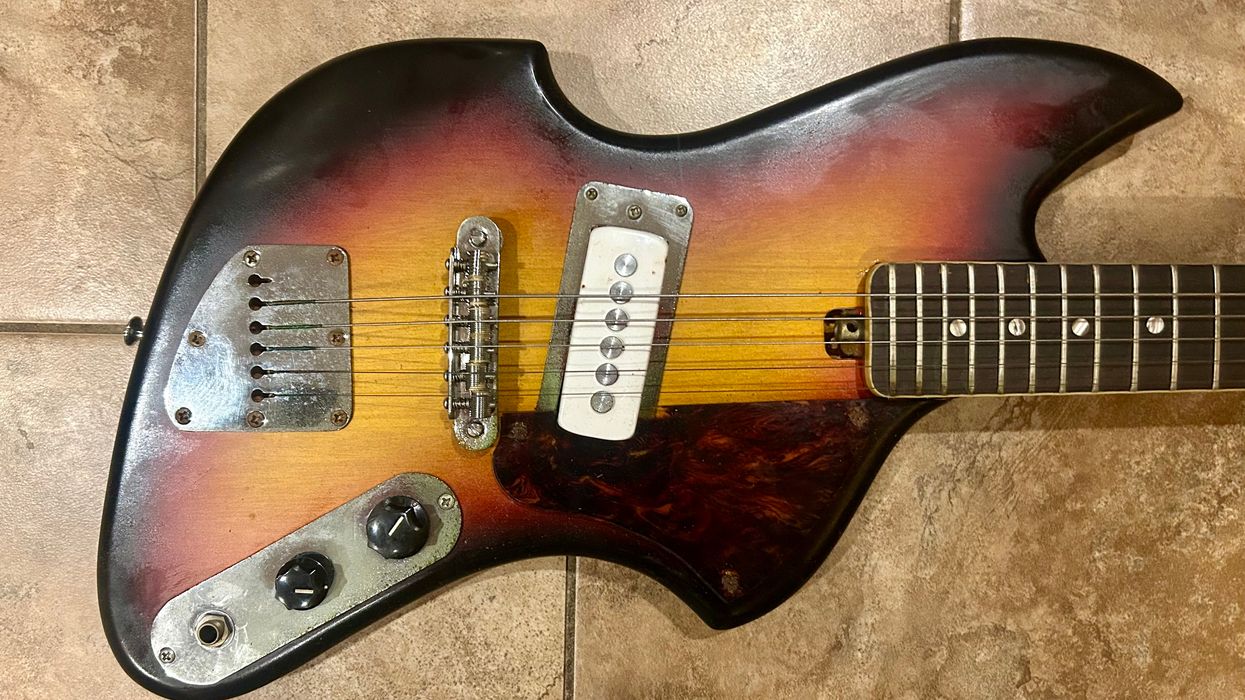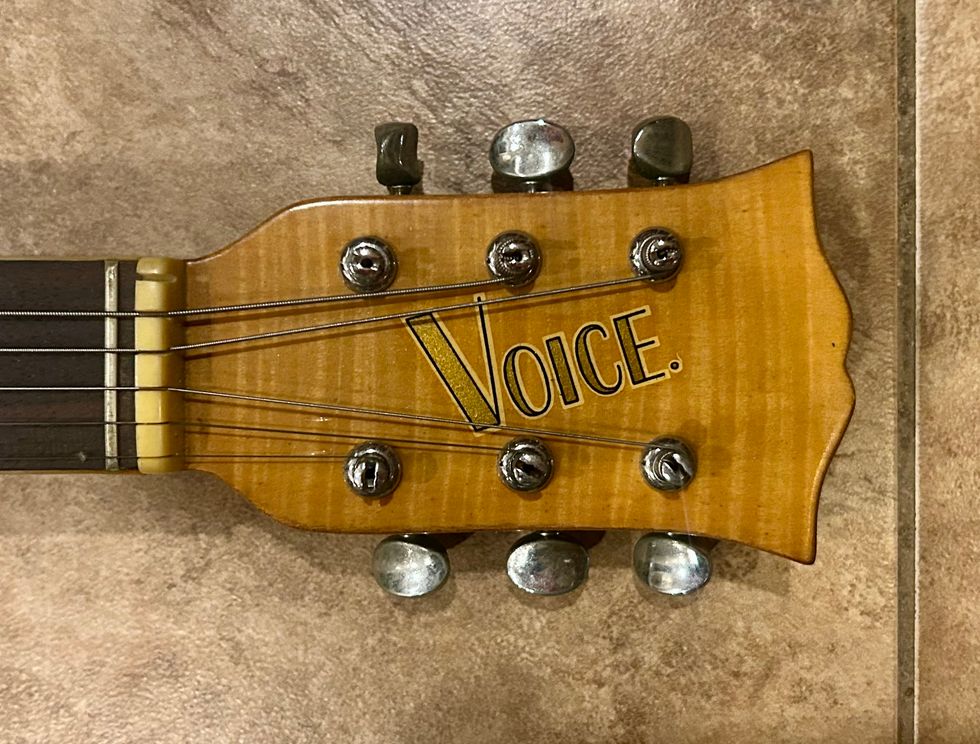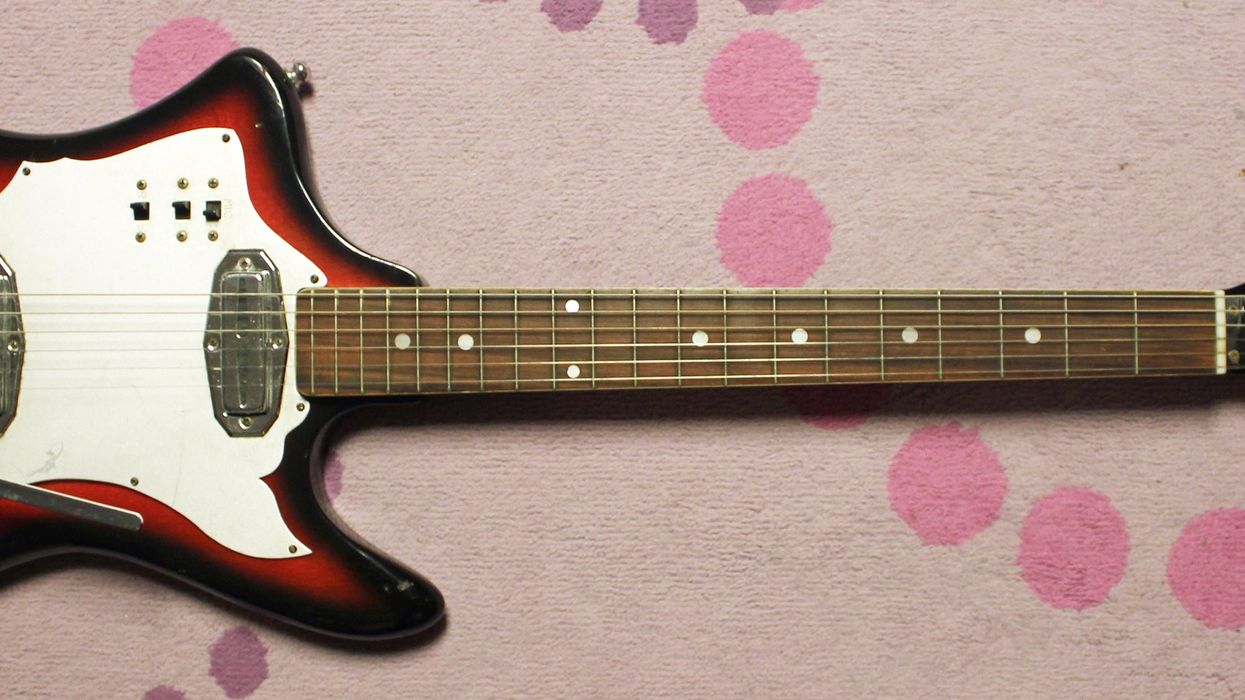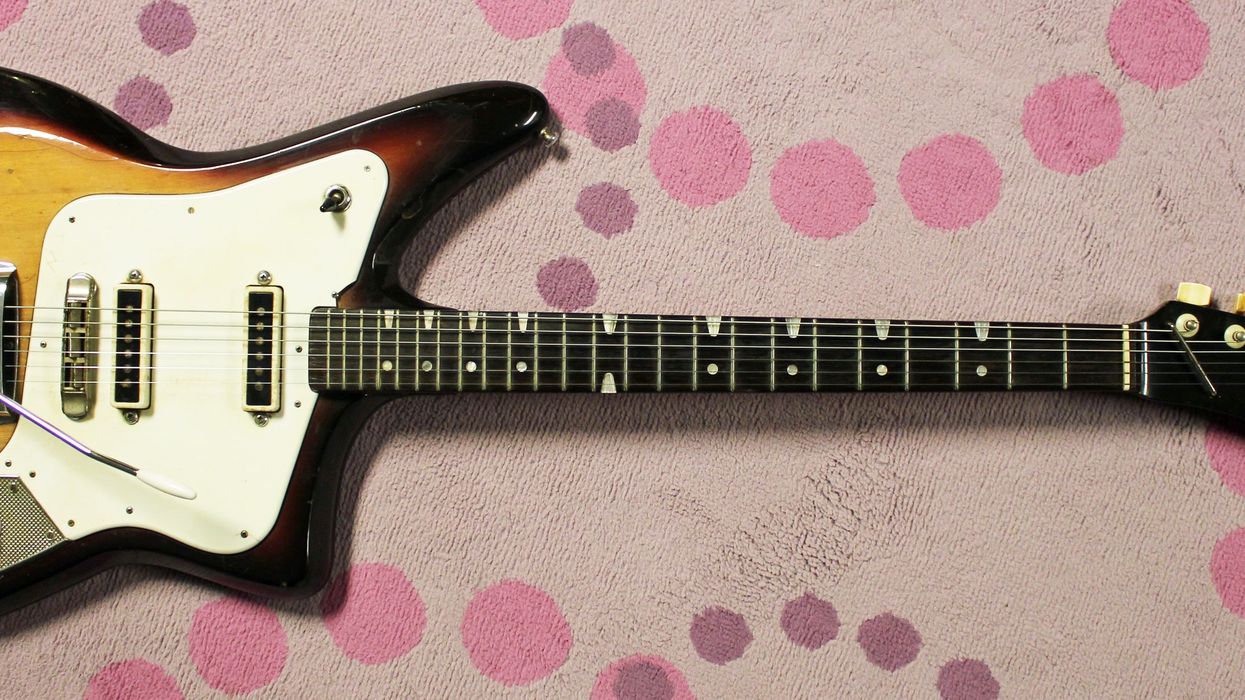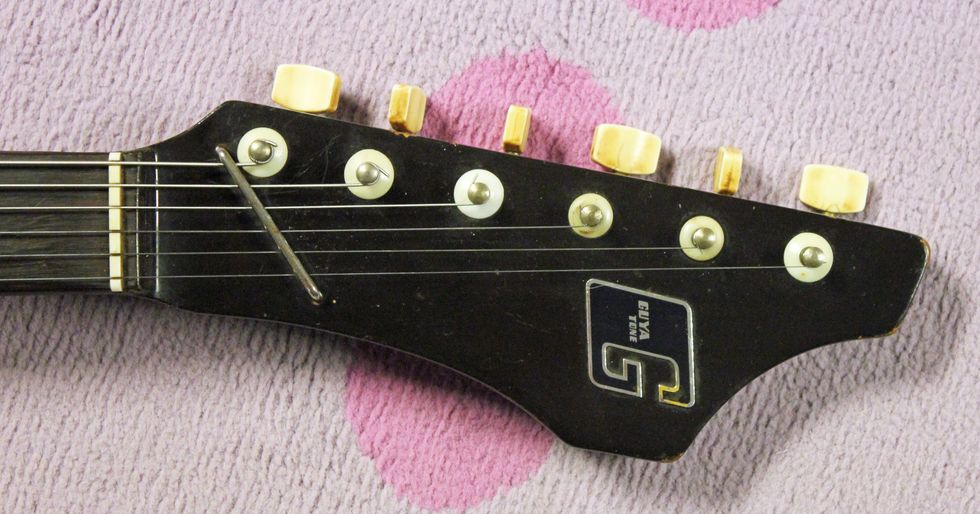Music has always been my escape. For a while, I was collecting obscure records from obscure bands, and that was just about as much fun as collecting obscure guitars. In my eccentric music collection, you can discover fife and drum music of Mississippi, 1960s Cambodian garage, furious punk, rap, hip-hop, ska, reggae, and raw blues that could peel the paint off the walls.
There was one legendary record that I was always on the lookout for: Philosophy of the World by the Shaggs. The only version I had was a scratchy cassette with a washed-out photo of the album cover. I was turned on to the band by one of my good friends, who also turned me on to the Ramones! But the Shaggs were really something else entirely.
There are two things that are most interesting to me about the Shaggs. One is the mixture of their off-tempo, off-beat sound with an innocent and endearing quality. It sounds like someone handed some sheltered kids instruments and then simply had them write songs without any training or theory or ideas of what was popular music. And that’s pretty much the deal!
The band’s backstory is basically this: The Shaggs consisted of the Wiggin sisters from Freemont, New Hampshire. Their father somehow thought that, through some kind of divine intervention, his daughters were to become a famous musical act, and the man devoted himself to forcing the sisters to practice, write music, and even record an album. This was in the mid-to-late ’60s, when there were plenty of strange musical ideas being explored, but the Shaggs’ sound was really different. It was music written in a bubble inside a cultural vacuum. And I think it’s glorious.

Here's the bass version: The Avalon AV2B.
The second thing that drew me to the Shaggs was their guitars. In the grand tradition of matching instruments, the girls played an uber-obscure guitar called the Avalon AV-2T. I wrote about this exact guitar way back in 2014, but as I was thinking about the Wiggin girls, it got me to examine how a guitar can influence an artist’s sound or writing style. The Avalon was a Fujigen product from the late ’60s, and during that era the guitars all featured rather slim, laminated necks that were perfect for smaller hands. But the tiny frets required some finesse to apply enough pressure. And the action was usually only decent up to around the 12th fret, so your chords and keys were limited. Plus, the bridge offered very little sustain. I mean … that is the Shaggs’ sound! These Fujigen pickups have that resonant, thin tone that you can hear all over the recordings.
The body style of the Avalon is so psychedelic, like a crossbreed of a Burns Bison and a Mosrite, pollinated with a Teisco Spectrum 5. Like … this was one of the craziest of the old Japanese guitar designs and it was adopted by a family band from a small New England town. The daughters were home-schooled and weren’t allowed to date until they were 18. And yet there they were on their album cover sporting tiger-flame maple electrics! If you think about popular bands or popular guitar players, most have a signature guitar that serves as the canvas of a signature sound. The Wiggin girls had the Avalon.
These guitars were only made for a year or two, circa 1968. But now they’re real finds on the used market. There was also a bass version of the Avalon that came with either two pickups (AV2B) or one (AV1B).
If you want a truly radical music experience, search out the Shaggs and give a listen. While you’re listening, think about the guitar sound, 1969, or whatever else you’re tripping on at the moment. Because after you have a listen, you’ll be changed.
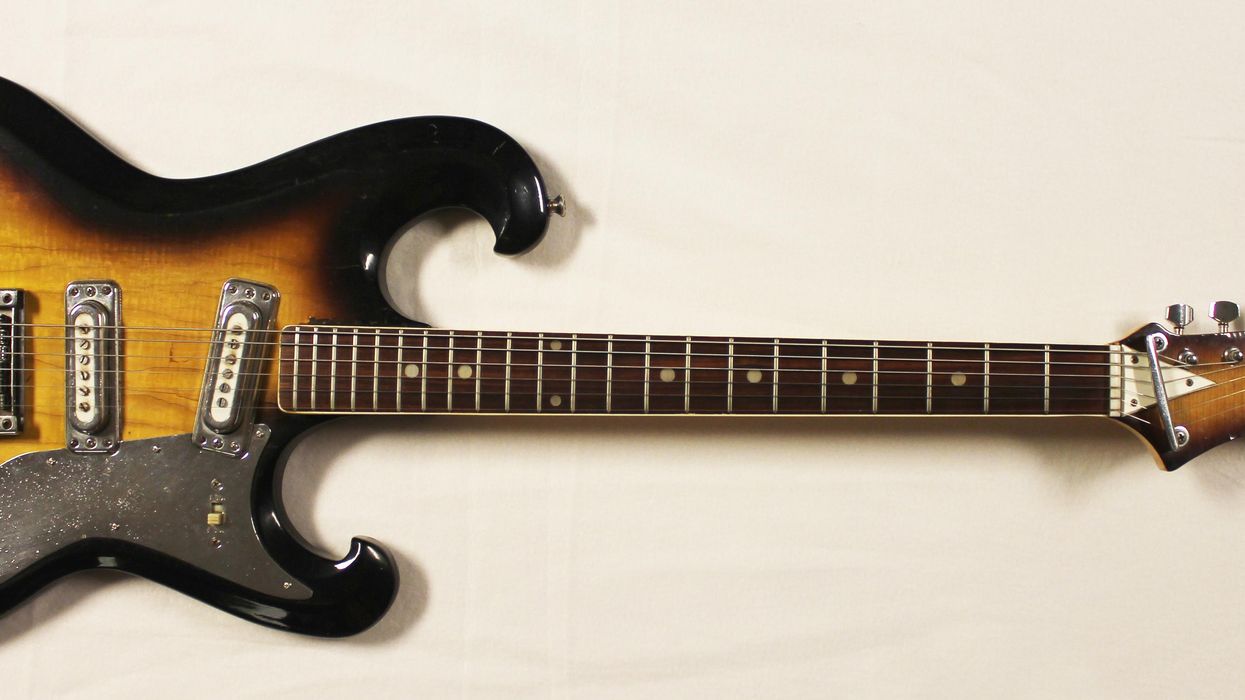

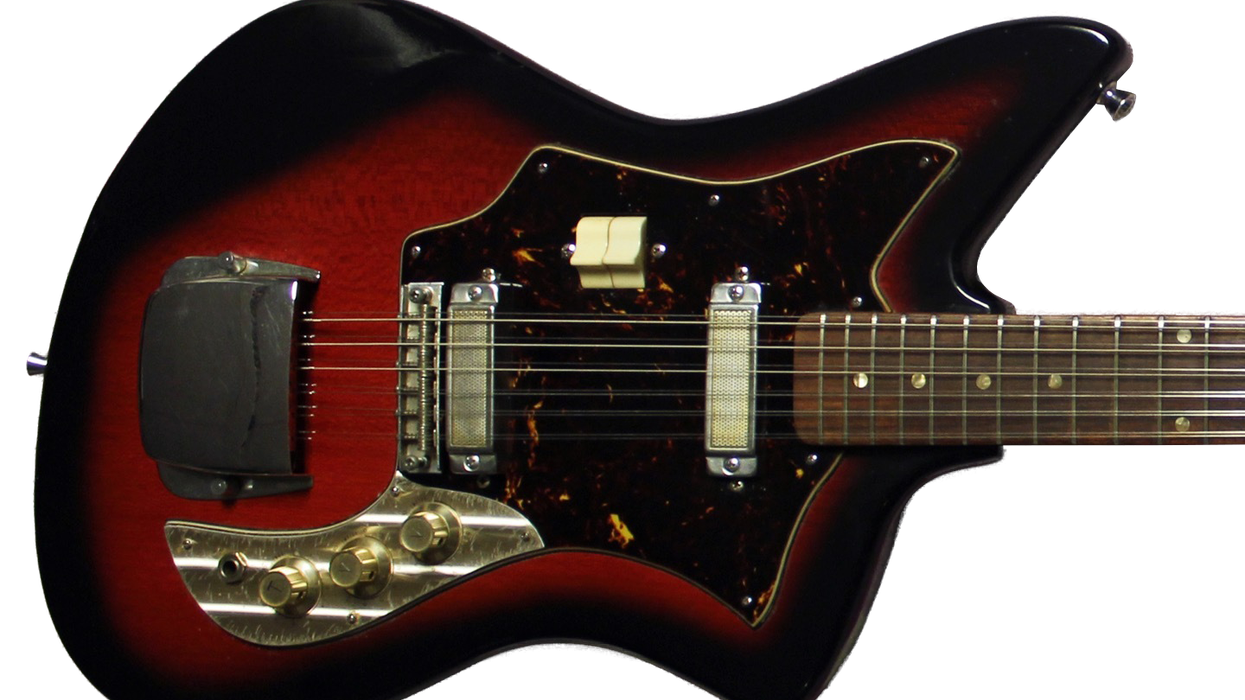
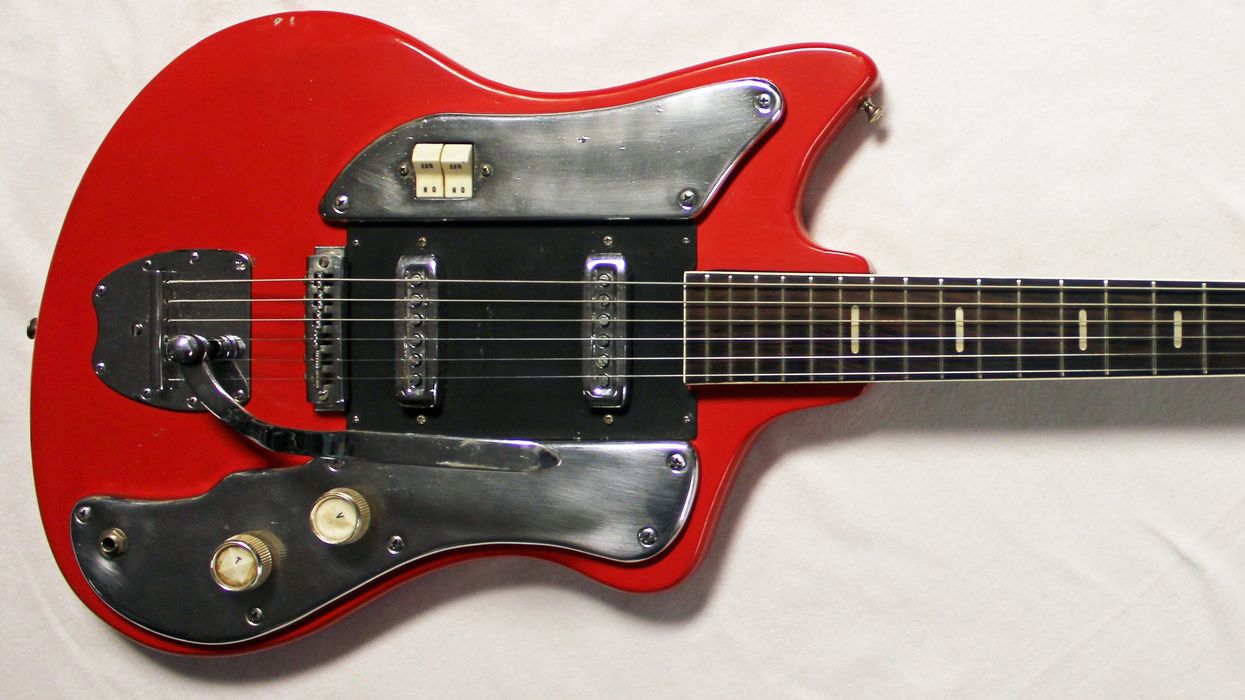
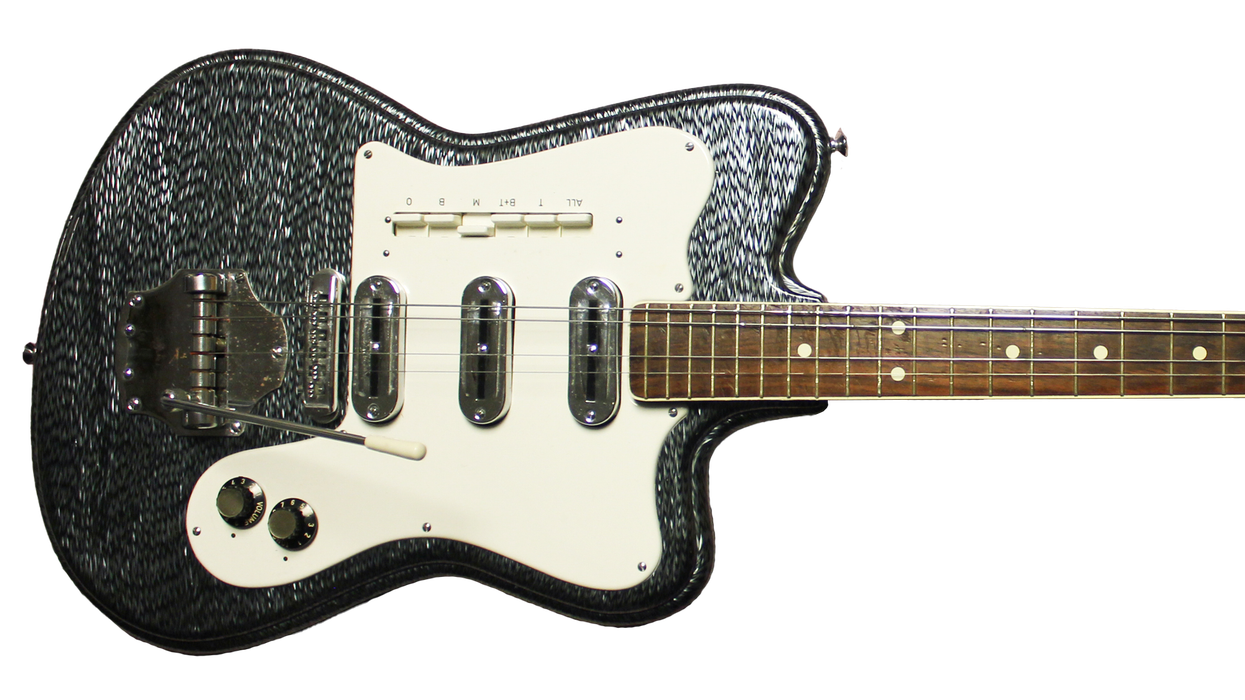
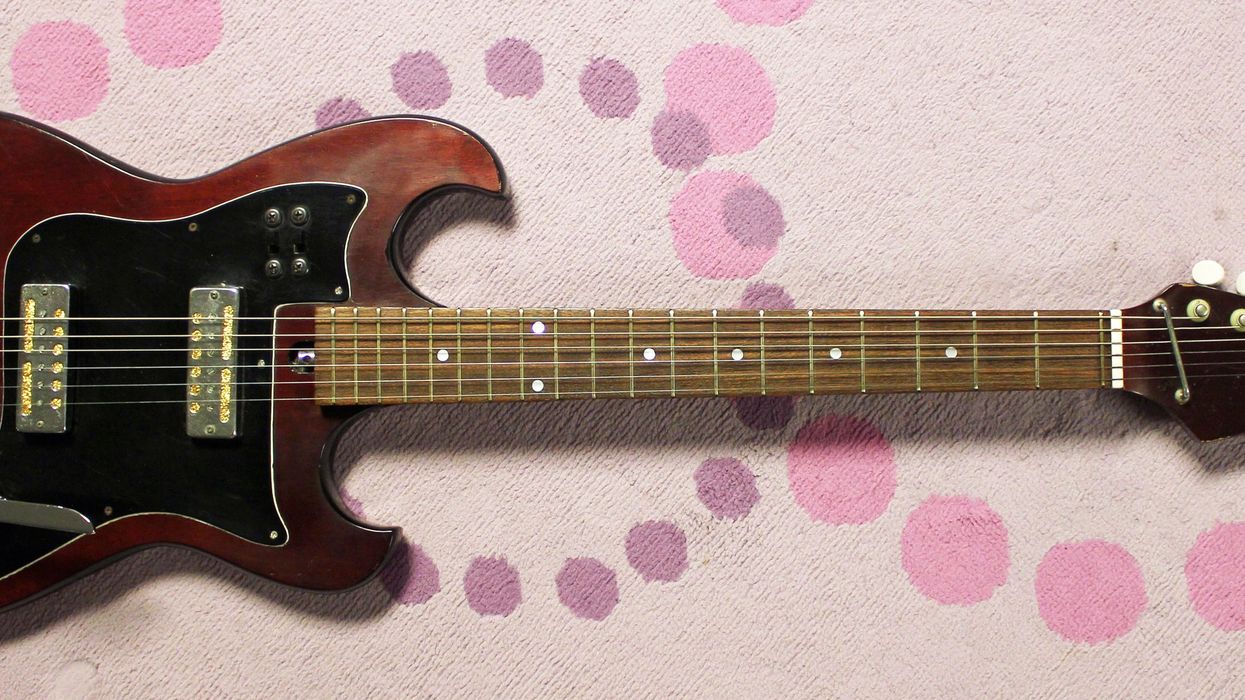
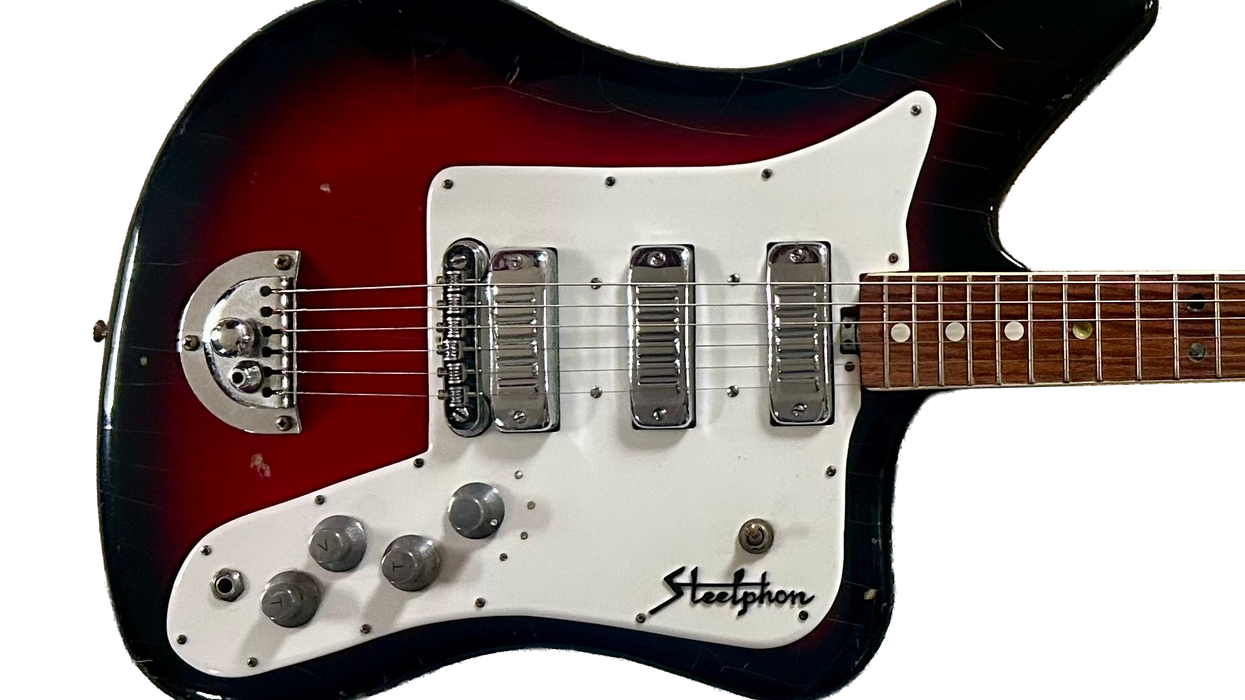
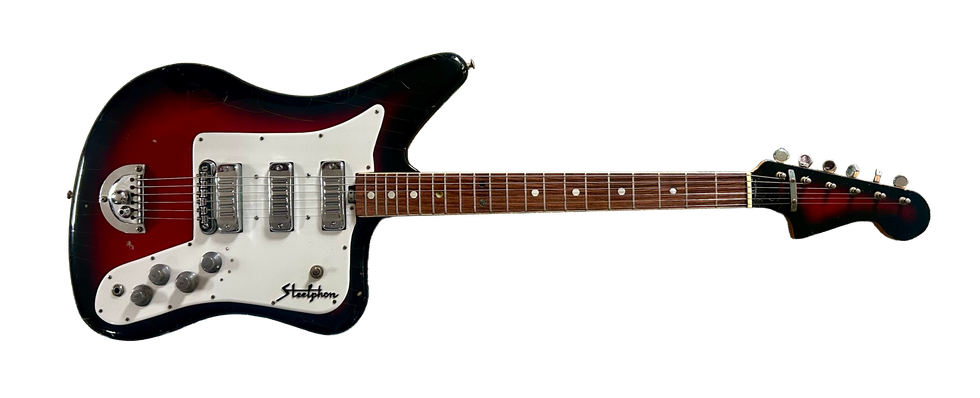 Then, in the dream, I “awoke” and realized I was back in my bedroom, and it was all just a dream. The kicker is that I was still dreaming, because that “paddle” guitar was suddenly in my hands—then I woke up for real! How about that misadventure?
Then, in the dream, I “awoke” and realized I was back in my bedroom, and it was all just a dream. The kicker is that I was still dreaming, because that “paddle” guitar was suddenly in my hands—then I woke up for real! How about that misadventure?